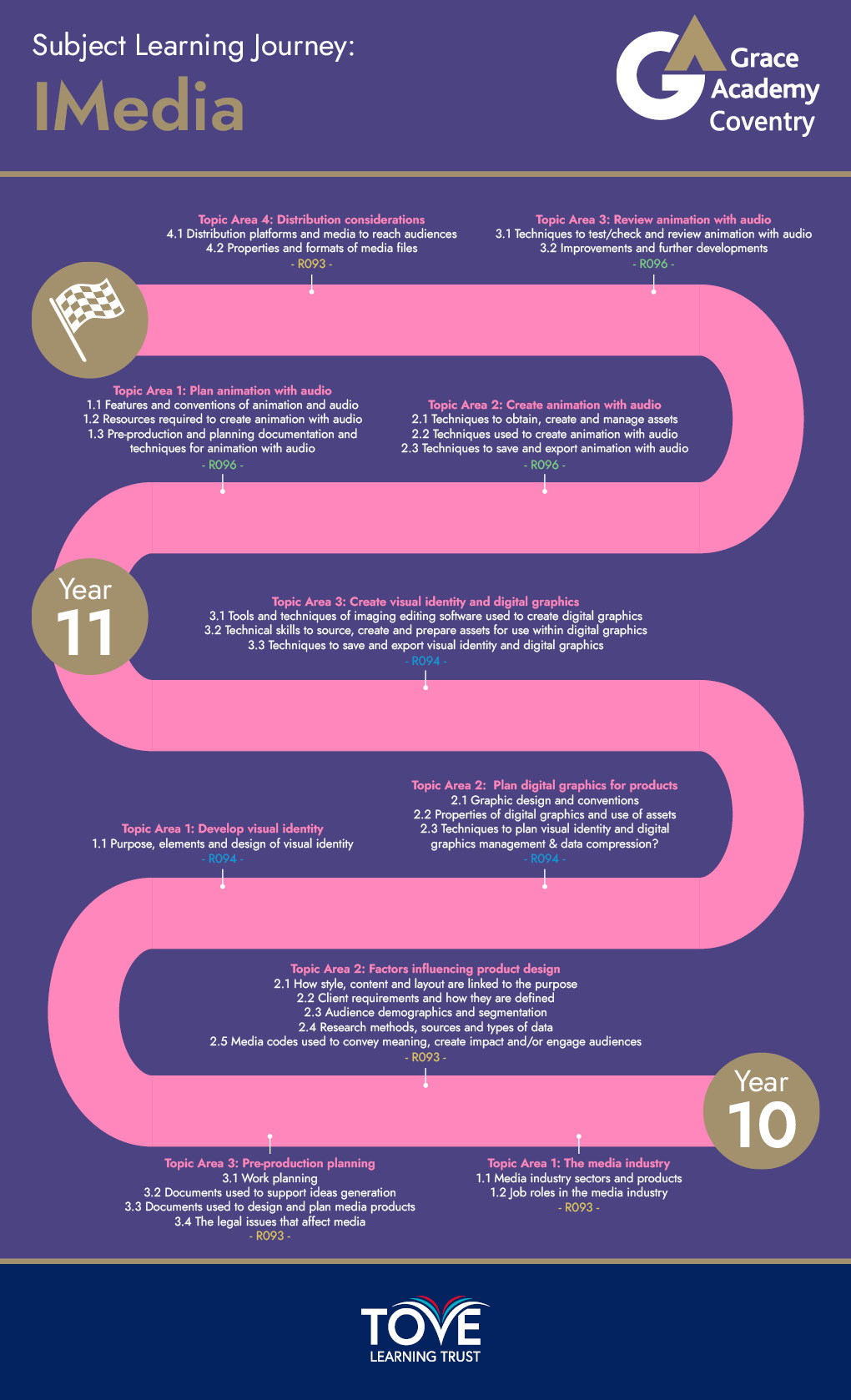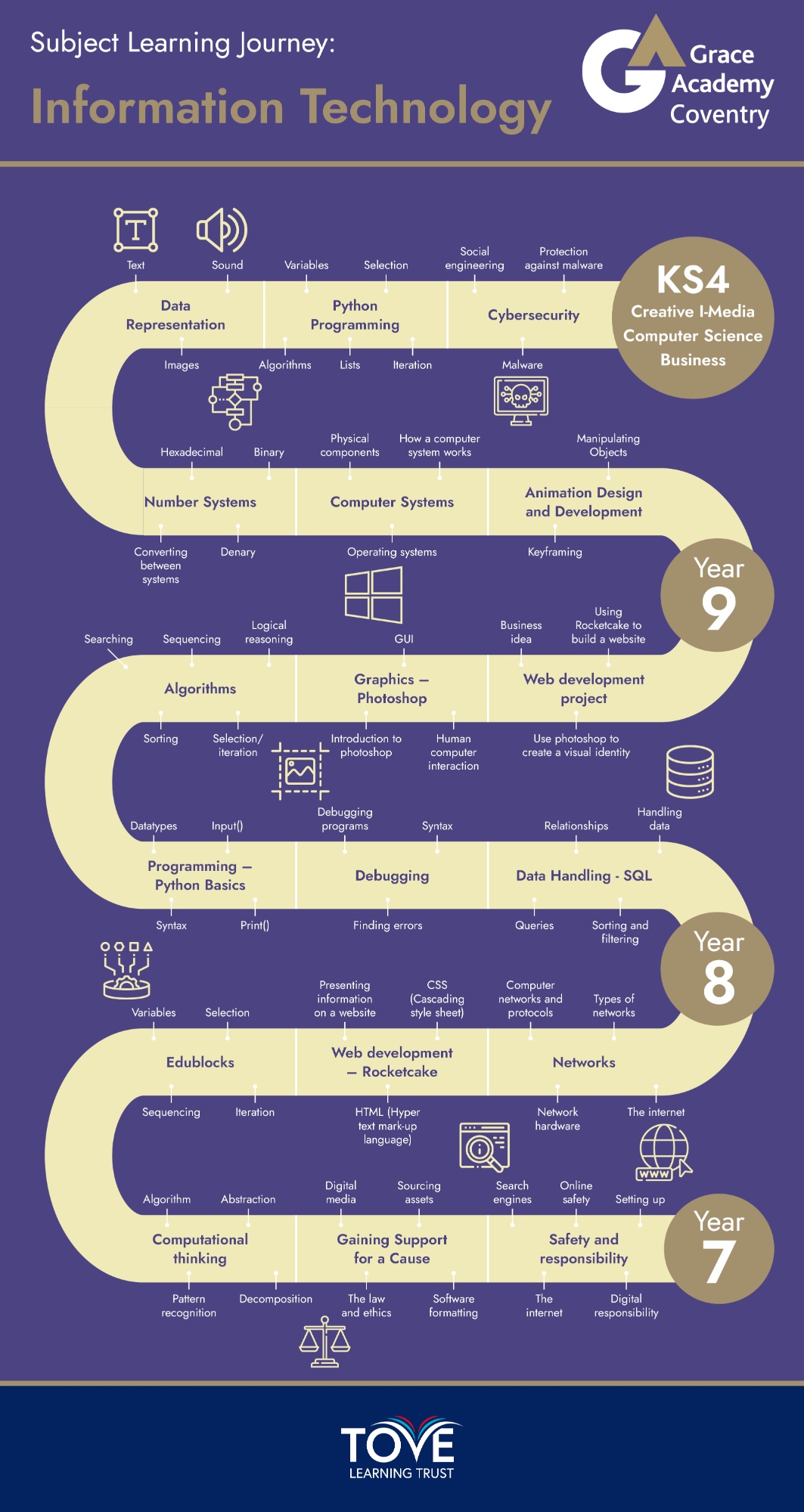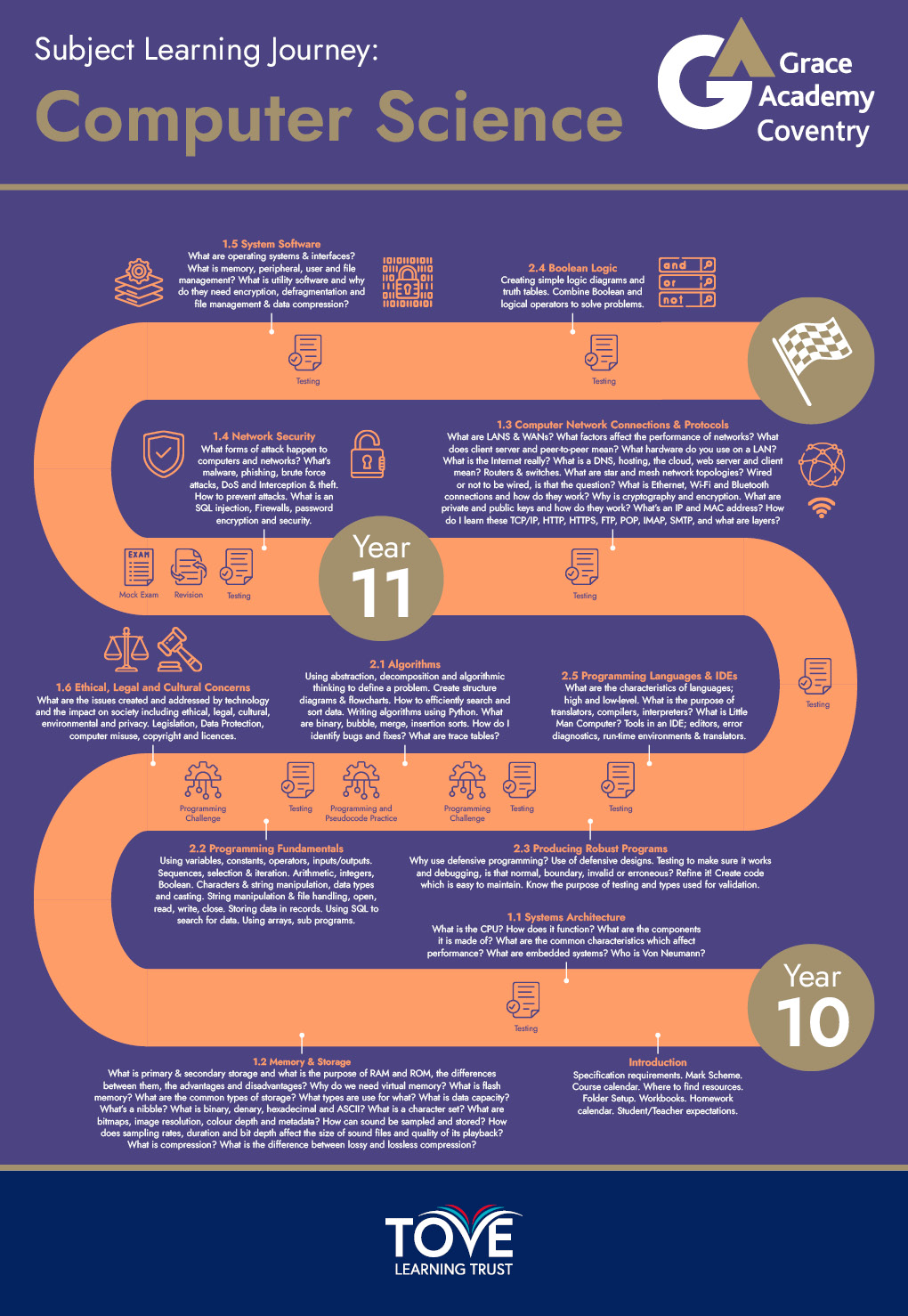Information Technology (Computing)
Curriculum Intent
Computing is constantly evolving and is essential to the way we live and work. At Grace Academy Coventry we strongly believe that ICT capability is essential if students are to make effective use of modern technology and enhance learning in all subject areas and subsequently later, in the wider world of work. Our curriculum will provide and empower students with additional skills and knowledge to become digitally literate and be suitable candidates for the workforce and active participants in a digital world.
Students are encouraged to use lateral and logical thinking, alongside learning programming and coding skills.
We currently offer a KS3 curriculum which focuses upon computational thinking, ICT-related issues and other areas of the National Curriculum. In KS4, students are able to focus upon digital iMedia, with KS4 computing planned for first delivery in September 2022.
Qualification information:
https://www.ocr.org.uk/qualifications/gcse/computer-science-j277-from-2020/

Curriculum content:
Attached are the curriculum maps which outline the sequence we use in order to structure our learning. If you would like to support your child's learning, we have attached links to Oak National Academy who provide lessons, activities and resources for commonly taught topics. Please use the curriculum map for this subject before visiting:
https://teachers.thenational.academy/subjects/computing/key-stages/key-stage-3
https://teachers.thenational.academy/subjects/computing/key-stages/key-stage-4


